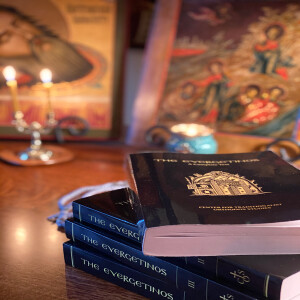
We picked up this evening with the beginning of hypothesis 18. For weeks now we have been reading about the essential practice of fasting. The cultivation of virtue and the overcoming of the passions is impossible without it. Making use of the body to strengthen the soul is a necessity. But we quickly realize from the stories that this practice can become imbalanced; monks could fall into extremes and be tempted to engage in disciplines in ways that feed the ego – ways that make them feel holy or religious.
Yet the desert was a great teacher. The monks learned in this laboratory the subtle movements not only of the mind and the heart, but the way the demons tempt us to extremes. To fast for three or four days serves only to weaken the body and this can disrupt one’s spiritual practices as well as one make one ill. It can also, fill the heart with pride. In this, the gains made in the life of virtue can be lost in an instant.
Therefore, the fathers begin to understand that fasting must be practiced with restraint, measure, and good wisdom. We must never lose sight of the fact that our fasting is tied to Christ and who he is for us. He is the beloved, the heavenly bridegroom, and our fasting and the hunger it produces must be tied in our minds and our hearts to our desire for Christ, the bread of life. He alone satisfies the deepest longings of the human heart. Therefore fasting is not meant to kill the body, but rather re-order our desires toward their true end. Fasting then is to be done with regularity, extending no more than one day. We begin simply by not eating to the point of satiation. We give the body what is necessary, but no more. In all of this we are taught that the royal path to purity of heart is fasting and that light burdens are also profitable.
---
Text of chat during the group:
No comments yet. Be the first to say something!